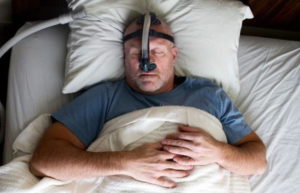Symptoms of temporomandibular joint disorder (more commonly known as TMJ) are so varied that many people do not even realize they have the disorder and mistake it for something else. Thus, most people who suffer from it do not get the proper treatment for their condition. This dilemma results in a vicious cycle that worsens the condition and the painful symptoms. One symptom often associated with TMJ is not pain, but a tingling sensation and numbness of the face, which can reach down to the arms and fingers. Can clenching teeth cause facial numbness? How do you determine what it is TMJ-related?
What your body is telling you about TMJ
Aches and pain associated with bruxism are the body’s healthy responses to the condition. It is your body’s way of letting you know that something is not right and needs your attention. Continuous jaw clenching and teeth grinding causes the muscles, ligaments, and tendons around the jaw, face, and neck area to compensate for the injury. Over time, those parts that provide compensation become weak and unproductive. It leads to mild and severe aches (depending on the severity of the bruxism).
Any painful symptoms of TMJ can be chronic (never goes away) or acute (comes and goes), and the degree of pain may vary too. Some people feel sharp, unbearable pain, while some experience dull pain that never seems to go away.
Jaw pain can be fatigued, stiff, or over-worn muscles or joints. Headaches usually come in the morning, but can also appear at night, and can be constant or fluctuating, with pain ranging from dull to intense. Teeth sensitivity can happen in a specific area or is generalized. Ears can have dull or intense pain. Cheeks may feel tired or numb. Some may feel swelling on one side, while some experience tired cheeks and a popping jaw. The neck may feel slightly dull or stiff, or intensely painful. Some people may experience pain that radiates to their back.
What makes TMJ tricky to diagnose
TMJ is a literal pain in the neck. More often, the pain radiates from the jaw to the ears, head, neck, and down to the shoulders as the disorder puts the jaw joint (temporomandibular joint), teeth, and facial muscles out of proper alignment. But did you know that a simple bad habit of jaw clenching or teeth grinding can cause TMJ and lead to a long list of symptoms that make the disorder quite tricky to diagnose? This is why health experts call TMJ disorder the master of disguise; it masks its symptoms in many ways, and many times these symptoms can be easily mistaken for other conditions.
Facial numbness, for example, can be a cause of the emergency, especially if it comes with headaches and numbness of the entire arm and fingers, as it can be the first symptom of multiple sclerosis (a chronic condition that involves the central nervous system), stroke or ministroke, hemiplegic migraine, infections, or even Bell’s palsy (a condition that causes numbness on one side of the face).
However, if you are suffering from bruxism, then there is a good chance the clenching of your teeth is what causes the facial numbness you are experiencing.
How does this happen?
How TMJ can cause facial numbness
So, can clenching teeth cause facial numbness? Yes, absolutely.
There’s a plethora of nerves, veins, muscles, and tissues all over the head, face, and neck. These three parts house up to 30% of the body’s nerves, particularly near the jaw.
The temporomandibular joint sits on each side of your head, in front of your ears. It connects your lower jaw to your skull and allows jaw movement. Incidentally, one of the largest nerves in the human body, the trigeminal nerve, runs through this joint to the brain stem. When the jaw is overworked and worn out, it becomes misaligned. When this happens, it pinches the trigeminal nerve causing pressure that leads to numbness, tingling sensations, and a loss of feeling in other parts of the body as it cuts off the sensory input in these areas. While a little numbness from time to time may not bother you, you may also experience nerve damage over time.
Unfortunately, physicians often confuse and misdiagnose pain in the jaw, head, and neck area, and only treat the symptoms, not the source of pain itself. Moreover, most patients don’t realize the pain and its symptoms are related to the temporomandibular joint in the first place.
There are three major branches of the trigeminal nerve, and each of them carries signals to different areas of the face. TMJ can affect one or all three nerves, causing compromised or loss of feeling in the face, which you may feel as numbness.
Numbness can go all the way down to the arms and fingers
Though less common, the numbness or tingling feeling from the face can reach the lower extremities, such as the arm and fingers.
The muscles and tissues around the jaw contribute to holding the neck upright. If these muscles are strained and overworked from TMJ, the muscles nearby can pick up the slack, causing the neck to tilt. The neck tilting puts more pressure on the nerve responsible for the sensation to the arms and fingers, which results in a tingling sensation and numbness.
Getting help
Diagnosing temporomandibular joint disorder is more like detective work – your physician will have to make a thorough diagnosis and some tests based on the symptoms you provide and how long you have been experiencing them.
Incidentally, your dentist can better diagnose this problem by simply examining your teeth. The signs of jaw clenching and teeth grinding can manifest in your teeth, such as worn-down enamel, broken or chipped teeth, and even loss of teeth and fillings. Symptoms like headaches, earaches, and disturbed sleep are also common signs of bruxism that your dentist can easily diagnose. To further investigate, they will assess your bite pattern, jaw muscles, and joint functionality, and even recommend an MRI to get a better look at the disc in the joint.
Family doctors and physical therapists can also diagnose TMJ by looking at the risk factors.


























